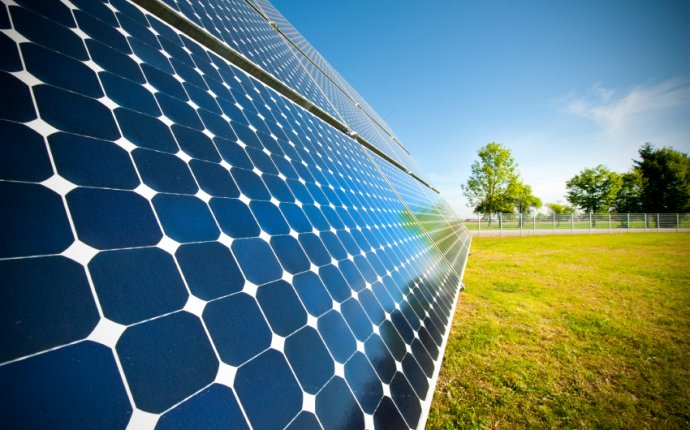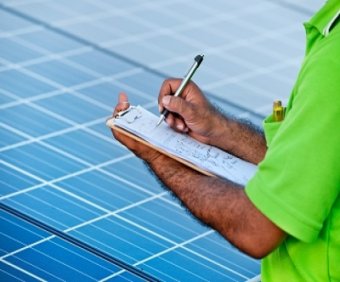
Convert to solar Power

Growing Demand for Solar Power
Many HOAs fail to incorporate environmentally-conscious development practices into the management of their HOAs. Conserving energy is just the beginning of the myriad benefits associated with emerging green alternatives. Optimizing your HOA for solar energy is one of the best ways to conserve energy, leading to:
- Dramatic cost savings
- Increased health
- Minimal environmental impact.
With overwhelming evidence that carbon emissions are a major contributor to global warming, people are now looking at home improvement to decrease their amount of carbon emissions, and your homeowners association can too.
Switching to Solar: Is It Right for You?
HOAs face many options and obstacles when considering whether or not it makes sense to go switch to solar. Developments vary by type (such as condominiums and planned developments), size, shape, zoning, and other factors that determine how conducive the buildings may be for alternative energy.
Evaluate Your Electricity Output
With regard to electrical metering, buildings may be set up one of two ways:
- Each unit is separately metered for electricity and/or hot water
- There is either one meter for the entire complex (usually divided between the common areas and the building units)
It's easier to convert to solar energy if the building falls into the latter category-one meter tracking the entire buildings energy usage. However, HOAs should be aware that any individual owner of a unit wanting to go solar has the legal right to do so (See Civil Code 714 for more information).
Big Investment, Bigger Return
Converting to solar can save thousands of dollars annually but requires a significant initial cash outlay. Solar power is a big expenditure that brings big benefits; you’re not just reducing your carbon footprint, you’re also ultimately increasing the property’s value and the value of individual units and reducing the property’s energy bills forever. A solar energy system also extends the life of the roof by protecting it from harmful ultraviolet rays and inclement weather.
We recommend that you install your HOA's solar panels and system in conjunction with a new roof (since both have an average useful life of approximately 25-30 years). If you don't, the roof may need to be replaced after the system has been installed, costing anywhere between $20, 000 to $50, 000 to dismantle and re-install the solar panels and coming straight from HOA's maintenance budget.
Now that you have decided whether or not solar panels are best for your HOA, we'll walk you through the steps of converting to solar energy.
Select a Solar Company
It seems that every construction company, window installer and roofer now claims expertise in solar energy system installation. Sure, they might have some transferable skills to offer, but they are probably not as experienced as you will want – and need.
Experience - The company you select will ideally have experience in the specific installation and ongoing maintenance of solar energy systems. Many companies that focus solely on solar installations have been around for a number of years, and they will have the experience your HOA needs. If you need help finding companies that specialize in HOA solar panels and system installation, try our Professional Directory.
Resource Availability - Your HOA needs to consider the amount of access to the company has to significant resources. Solar companies can be backed by major corporations which allows them to offer better financial options than the smaller companies. With larger, better-established solar companies your HOA won't have to wait months for a government rebate to come through. These companies offer project bids with rebates and incentives included, taking the fees out of their own resources.
- Keep in mind that HOAs are usually organized as nonprofit mutual benefit corporations. Therefore, associations are not eligible for the vast amount of incentives aimed at for-profit commercial properties and single-family homes, so make sure to find out which tax credits your HOA qulaifies for.
At first glance, the project bids may make the whole proposal seem unaffordable. You want to work with a solar company that has or is eager to gain experience working with HOAs. As the solar industry grows, many companies are focused on the low-hanging fruit (for-profit commercial properties and single-family homes) and do not devote the necessary attention to ensure your HOA maintenance project is a success.
Do your research, interview companies that have worked in your area previously and select one that is eager to work with a homeowner association.
Conduct the Assessment
This is the easiest step in the process. In order to conduct an assessment, just follow the assessment checklist:
Assessment Checklist| Set up a time for the solar specialist to come out for a site visit |
| Answer questions about your HOA's current energy usage |
| Provide electricity bills for the specialist to examine |
| Allow the specialist to photograph the property |
| Discuss the usable space for solar panels as determined by the specialist |
After completing the assessment, the solar energy company will prepare one or more project bids for your review.
Review the Project Bids
Typically, within a week of the assessment, your specialist will provide you with project bids that outline the proposed system, which will include the
- Amount of energy to be off-set
- System specifications
- Financial analysis
Carefully review the proposal to understand the projected results of the system for your HOA. In some cases, you will receive more than one bid since several factors can significantly affect the recommendation.
Example: If the proposed system is to be owned by a for-profit entity, after rebates and incentives, the cost of the system may be as little as 20% of the cost of that same system for a nonprofit entity.
A homeowners association of mixed-use condominiums may want to approach the owners of the commercial units in the building and offer them the title to the solar energy system on behalf of the HOA. This way, the HOA's non-profit status won't be compromised, but the building would be able to take advantage of the rebates and incentives available to for-profit entities.
Remember, residential-only homeowner associations can have the owners separately form a for-profit entity that could take the title of the HOA's solar panel system. The resident-owned company then leases the solar power system back to the HOA, which allows the HOA to obtain the financial benefits afforded to for-profit entities.









